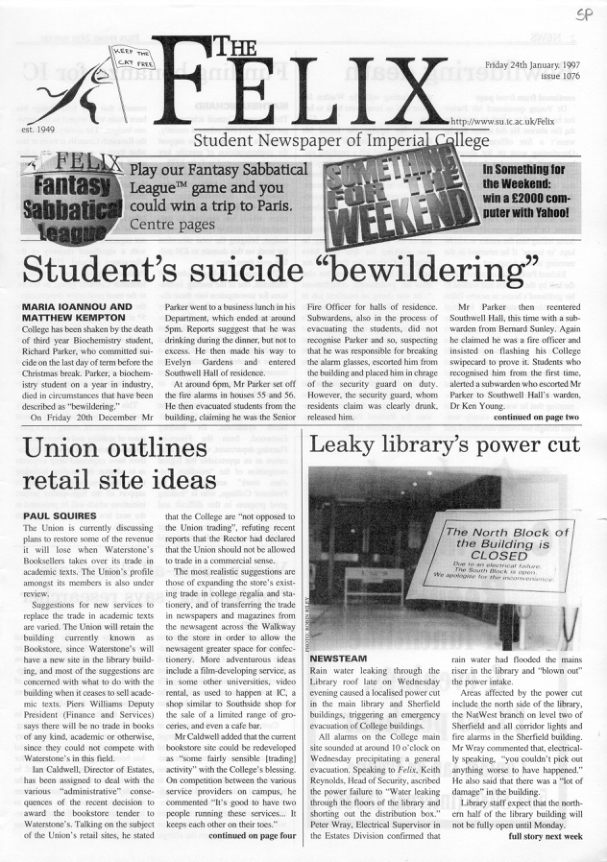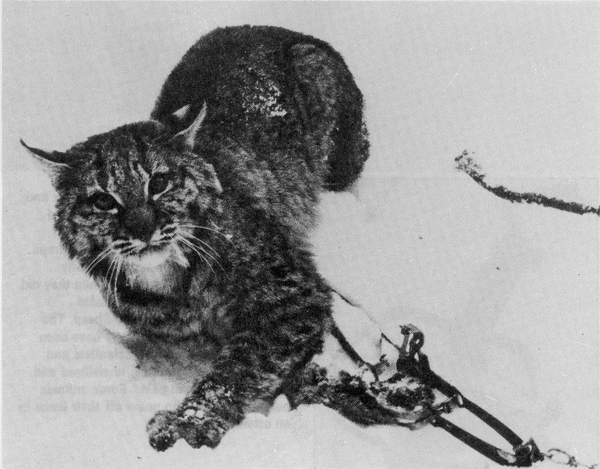A natural speaker
Professor Wolpert author of ‘The Unnatural Nature of Science’ gave a lunch time lecture at Imperial College on January 15th about some of the key issues raised in his book.
When asked about his recent experience on Desert Island Discs, Lewis Wolpert replied, "I listened to the tape about three months later and thought to myself what an interesting chap!"
Lewis Wolpert is a colourful character. As Chairman of the Committee on the Public Understanding of Science, this Professor of Embryology is as well known for his many media appearances discussing the popularisation of science. He is the ‘face’ of science in the UK.
Originally trained as a civil engineer, Wolpert’s experiences have ranged from organising the water supply in Israel, to writing a column in the Independent on Sunday. He came to London from South Africa as a qualified engineer to study soil mechanics at Imperial College. To the surprise and annoyance of his supervisors Wolpert later discovered a passion for biology.
A prominent theme of Professor Wolpert’s talk last Wednesday was how hard it is for scientific concepts to be understood by non-scientists.
Wolpert highlighted the bad press that scientists are given in literature with a quote from D.H.Lawrence, "Knowledge has killed the sun, making it a ball of gas with spots...The world of reason and science...this is the dry and sterile world the abstracted mind inhabits."
He also listed many other writers and great thinkers who have felt "embarrassed" or "humiliated" by their lack of scientific understanding. He then went on to question how much public scientific knowledge is based on understanding. For example, he asked how many people really understand why the earth revolves around the sun, and how many simply accept this as true, without knowing why.
Wolpert believes that the relatively poor understanding of science stems from the fact that science is not based on common sense: "anything that is common sense is not scientific". Science, as the title of his book suggests, is an unnatural state.
Wolpert also argued that science and art are fundamentally different, although they can coexist. In contrast to the arts, where we wouldn’t have Hamlet without Shakespeare, scientific discovery is not dependent on individuals. Individual contributions to science are consolidated into a general body of knowledge often making previous works of science irrelevant; historical papers become like the husk from which the corn has already been taken.
Perhaps one of the most well known of science communicators in Britain, and in one of the most important jobs in science communication, it seems that Wolpert is well placed to make a real difference to the public perception and understanding of science. Increasingly, it appears that science communication is important; good press about science should recruit more people into science and obtain better funding for science.
Lewis Wolpert is a fascinating speaker. Even in conversation over lunch, he is still performing and is witty and interesting. We were always entertained even if we didn’t agree with his views. However, it appears that Wolpert is not interested in discussing science with the public from any altruistic idea of informing, thereby empowering the public, or in creating jobs in science, or increasing science funding. He is arrogant in a sense, believing firmly that his views are absolutely the truth. When asked what his wish for the New Year was, he said " I wish that people would take my ideas as seriously as I take them" . So there we have it the ‘face’ of science in the UK is an intriguing man. If you want to know more, read his book - it’s an intriguing read.
J.Salmon and J.Sheringham
Lunch Hour Lectures
Professor Lewis Wolpert was speaking as part of a series of special guest lectures jointly organised by the Humanities Programme and the Physics Department. These popular lunch-time lectures are open to everybody and apart from the Shrodinger Lecture no tickets are required.
Time: 1.00pm to 2.00pm.
Venue: Lecture Theatre 1. Level 3 Blackett Laboratory, Physics Department, Imperial College.
Other lectures to look forward to this year include:
Wednesday 5th February 1997.
"The Physics of Road Accidents".
Dr. Richard Lambourn.
Principal Scientific Officer. Home Office Forensic Science Service, Lambeth.
Tuesday 18th March 1997.
Tenth Schrodinger Lecture
Professor Sir Michael Atiyah OM. FRS.
Master of Trinity College, Cambridge & Former President of the Royal Society
Time: 5.30pm.
Venue: Great Hall, Sherfield Building, Imperial College.
Tickets are required.
Contact Bob Speer on 0171-594-7514 end April/early March.
Wednesday 7th May 1997.
"Seeing the Light: The Physics of Photosynthesis".
Professor Jim Barber.
Ernst Chain Professor of Biochemistry, Imperial College.






